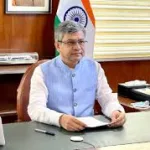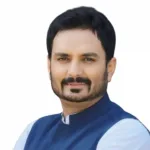Jammu & Kashmir Judicial Academy (JKJA) in its endeavour to strengthen the Judicial institutions and impart necessary skills to the judicial officers, organized one day special training programme on ‘Processes & Procedure in Criminal Cases, Cognizance and Trial of Criminal Offences and Maintenance under Cr.P.C’ for Munsiffs of Kashmir province and UT of Ladakh here today.
The programme was conducted under the patronage of Chief Justice, High Court of Jammu & Kashmir and Ladakh, (Patron-in-Chief, JKJA) Justice N. Kotiswar Singh, and guidance of Chairperson, Governing Committee for JKJA, Justice Sanjeev Kumar, and Justice Javed Iqbal Wani, Justice Rahul Bharti, and Justice Moksha Khajuria Kazmi; members of JKJA Governing Committee.
The training programme was inaugurated by Chief Justice, High Court of Jammu & Kashmir and Ladakh, Justice N. Kotiswar Singh Judge in the august presence of Justice Sanjeev Kumar, Judge, High Court of J&K and Ladakh and Chairperson, Governing Committee for JKJA.
Former District & Sessions Judges M.Y Akhoon and Aijaz Ahmad Mir were the resource persons in the programme. The training programme was conducted by Director, J&K Judicial Academy, Y.P. Bourney.
In his inaugural address, the Chief Justice emphasized on the importance of the role played by Judicial Magistrates in the Judicial system, as people come to the magistrates with their grievances and it’s the magistrates who decide whether or not to enter a case in the system which is a very crucial and critical area of the judicial system as the judges sitting at Higher Courts are only supervising authority while as magistrates are the original authors.
The Chief Justice also thanked the resource persons who have themselves been the part of the system for sparing time to enlighten the Magistrates with their vast knowledge and experience.
In his special address, Justice Sanjeev Kumar underlined that the purpose of imparting this training is to enhance the performance of Judicial officers and to remove inhibitions while applying the provisions of law in their day-to-day court work. He also observed that technical session on expediting the trial/disposal of Criminal cases is of great importance because the delay in disposing of the cases is of grave concern for all us associated with the dispensation of justice.





